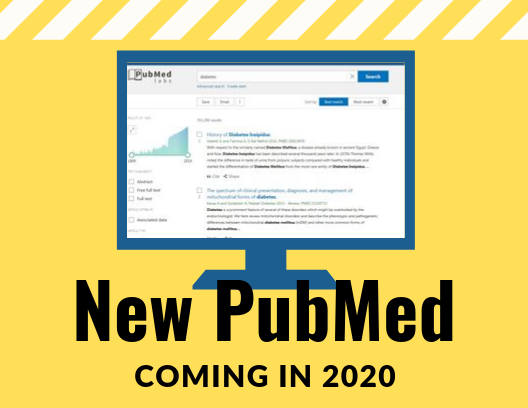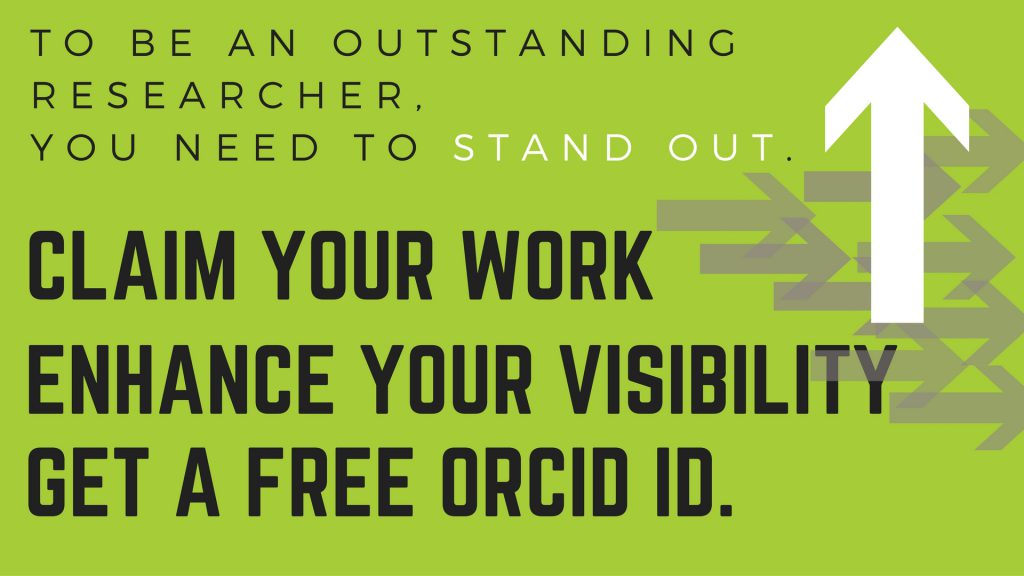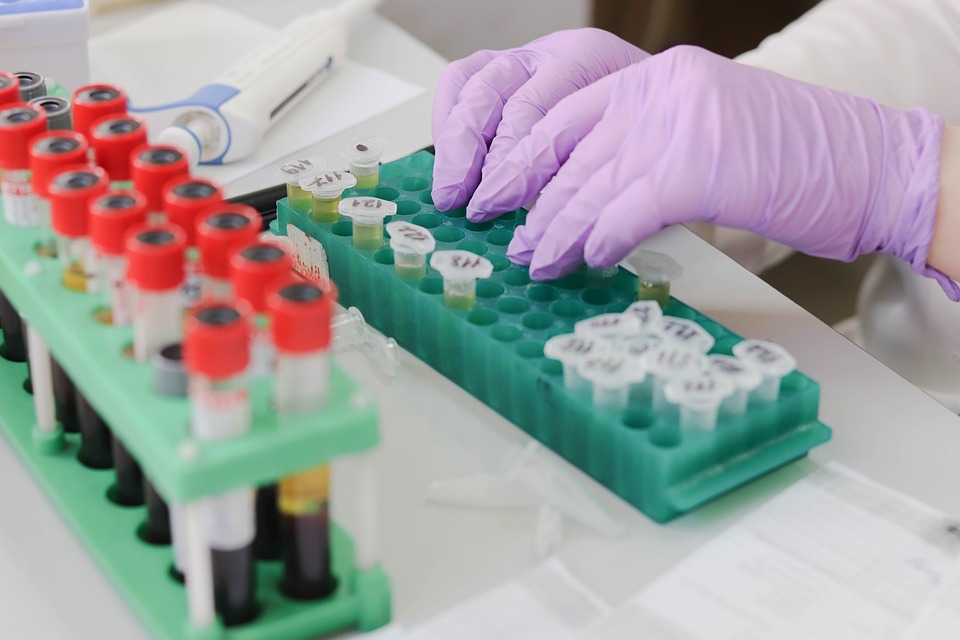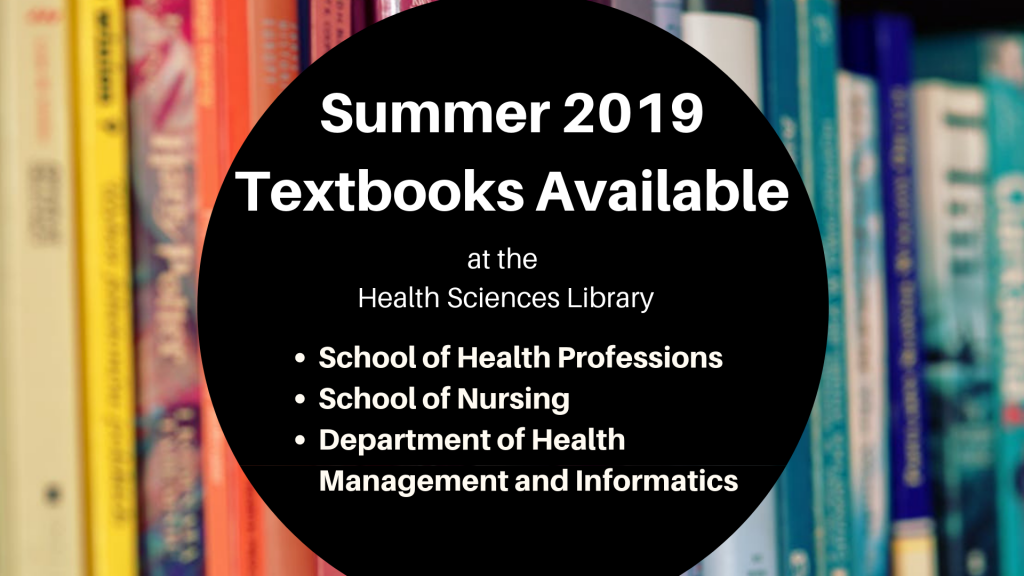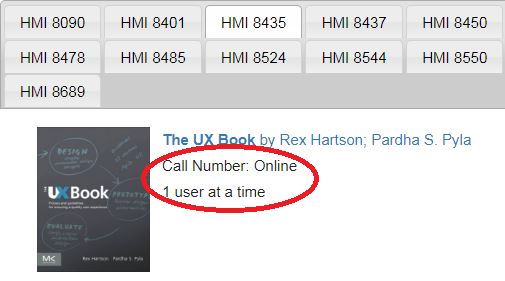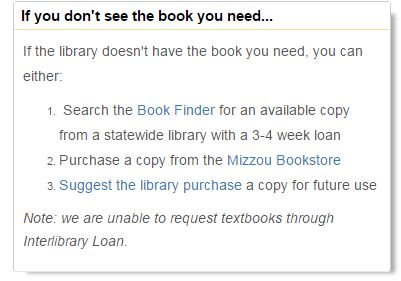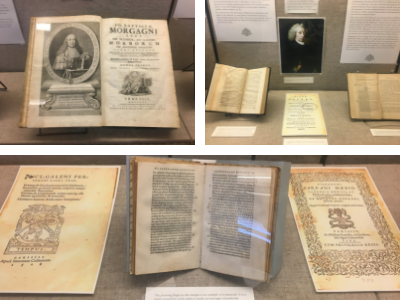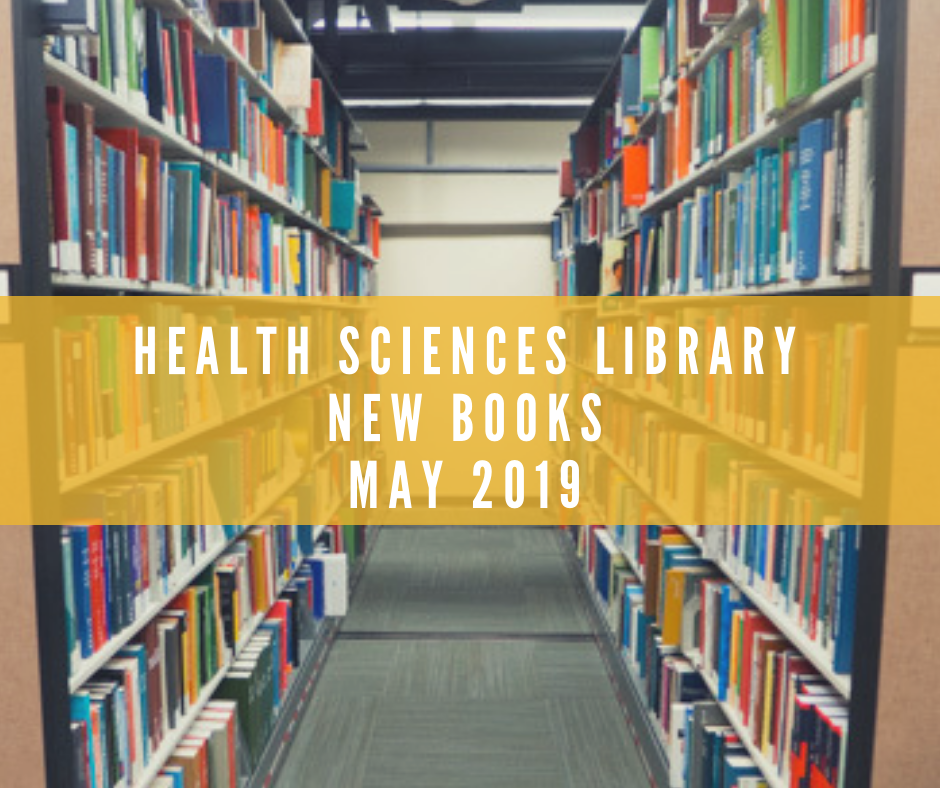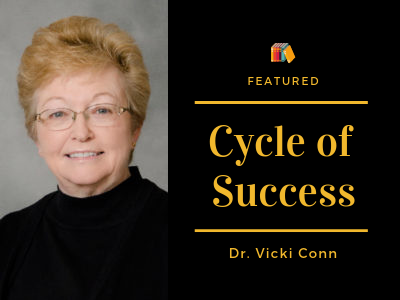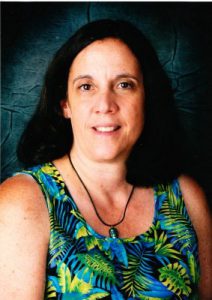Did you know that the Health Sciences Library has a rare book room? The Donald Silver Rare Book Room was donated to the library by the Department of Surgery in honor of Dr. Donald Silver, an emeritus professor. lt is located on the third floor of the Health Sciences Library, directly adjacent to the elevator. Viewing hours of rare books in the collection or of the room itself are available by appointment. Items can be used for research purposes and under limited conditions borrowed or scanned for use with the permission of the Rare Book Librarian or the Director of the Library, Deb Ward.
A “rare” book is considered rare because of the scarcity of item, not because of its dollar value, although at times that can be considerable. Rarity is based on a few factors: that there are few exemplars in existence, that they are primary source materials, that the intellectual content of the materials is significant, or they are old and fragile. Any one or more of those factors establishes that an item is “rare.”
The items in the Rare Book Room at HSL are placed there if they are printed before 1900 or are selected by the Director or HSL Librarians. Criteria for selection can also include considerations such as special examples of binding, fine paper, printing, or because they contain significant illustrations. Some titles are fascimilies, expertly reproduced copies, of important manuscripts and early printed books.
An item is given rare book status and retained in our library if the item affords a needed perspective on contemporary studies, or provides the opportunity to learn about early developments in the field of medicine. Other criteria include providing a historical focus on the patient, the medical environment, or medical institutions. Items, which identify a historical person or trends in medicine, or have a historical background to technological breakthroughs, are also given rare book status. We are particularly interested in collecting items relating to early medicine in Missouri.
Many of the books in our collection were donated by Clarence Martin Jackson, a former graduate of the University of Missouri. He received a B.S. in 1898, an M.S. in 1899, and an MD in 1900, all from Mizzou. He became dean of the Medical school from 1909 to 1913, and spent the rest of his career at the University of Minnesota. Jackson left over 12,000 items from his personal collection to the University of Missouri Libraries, including many of the volumes in the HSL Rare Book Room. Other books in the collection have been donated by many generous supporters over the years, or were originally purchased for the use of students and faculty in the medical and nursing programs.
This exhibit highlights some of the important works from our collection.
The works on exhibit are:
- Samuel Thomas von Sömmerring. Icones embryonum humanorum. Frankfurt: Varrentrapp and Wenner, 1799.
- Giovanni Battista Morgagni. De Sedibus et Causis Morborum per Anatomen Indagatis. Venice: Ex Typographia Remondiniana, 1761.
- John Huxham. An essay on fevers, and their various kinds, as depending on different constitutions of the blood: with dissertations on slow nervous fevers; on putrid, pestilential, spotted fevers; on the small-pox; and on pleurisies and peripneumonies. London: S. Austen, 1750.
- Claudius Galen of Pergamon. Libri tres : Primus, De facultatum naturalium substantia. Secundus, Quod animi mores, corporis temperaturam sequuntur. Tertius, De propiorum animi cujusque affectuum agnitione & remedio. Paris: Simon Colinaeus, 1528.
- Florence Nightingale. Notes on nursing. New York: D. Appleton and Company, 1894.
- Girolamo Cardano. De methodo medendi. Parisiis: Rovillii, 1565.
